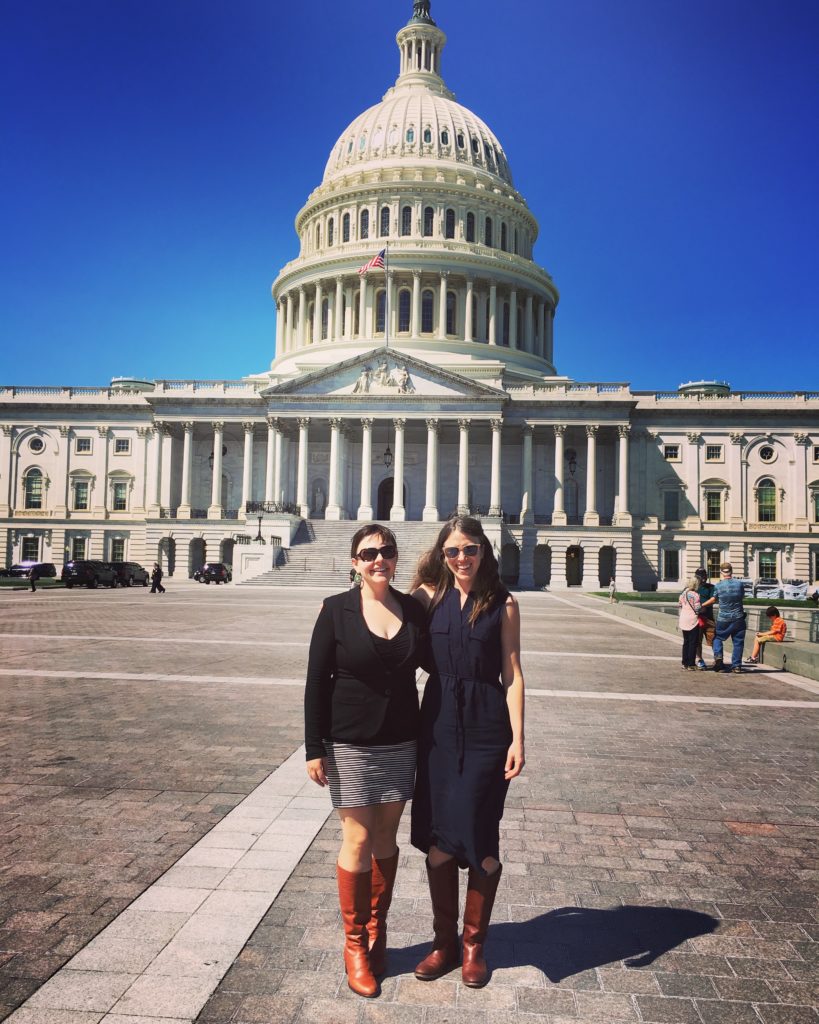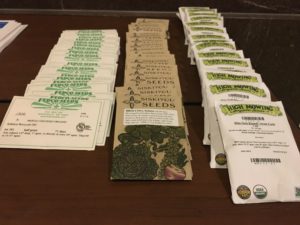
OSA was in Washington, DC, last week to participate in the Capitol Hill Agricultural Research Exhibition and Reception. This was the first time the event was held, and more than 20 exhibits were on display for the nearly 200 visitors. Research topics included nutrition, honeybees, organic agriculture, specialty crops, plant and animal health, and watershed and rangeland management, to name a few.
Visitors included members of Congress and their staff — Congressman Conaway (TX), Senator Hoeven (ND), Congressman Davis (IL), and Congressman Panetta (CA) all delivered remarks — as well as many USDA staff. Event sponsors included the AFRI Coalition, Association of Public and Land-Grant Universities, National Coalition for Food and Agriculture Research, and Supporters of Agricultural Research Foundation.
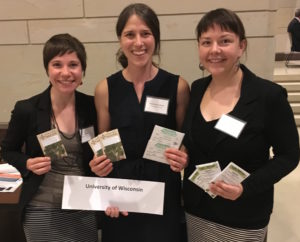
Tessa Peters, a University of Wisconsin PhD plant breeding candidate, and Kiki Hubbard of OSA, hosted an exhibit to share the results of the Northern Organic Vegetable Improvement Collaborative (NOVIC). Our exhibit was wildly popular thanks to the seed contributions of Fedco Seeds, High Mowing Organic Seeds, and Siskiyou Seeds. We handed out dozens of seed packets of two organic seed varieties that resulted from NOVIC partnerships: ‘Who Gets Kissed?’ sweet corn and ‘Solstice’ broccoli. Having tangible outcomes from this multi-state participatory plant breeding project underscored the importance of public funding to deliver new seed varieties to organic farmers. (See more photos at the bottom of this post.)
Organic research in high demand
The organic industry continues to experience double-digit growth. From 2015 to 2016, organic product sales grew by 11%, totaling more than $43 billion. Funding from the Organic Research and Extension Initiative (OREI) is fundamental to the success of organic farmers and the markets they serve. OREI was established in the 2008 Farm Bill to solve critical organic issues through research, education, and extension. The purpose is to enhance the ability of producers and processors to grow and market high-quality organic products.
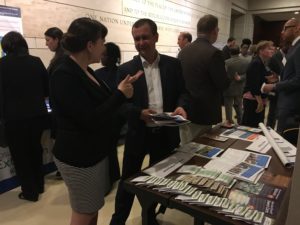
Organic farmers produce food differently, and that means they need different seed for the crops they grow – seed developed to thrive without synthetic fertilizers and pesticides, and adapted to their local climate and soil conditions. The return on OREI investments in organic plant breeding and other organic seed research has been enormous, including new plant varieties that perform especially well on organic farms.
NOVIC is a success story of public investments
NOVIC is an OREI-funded partnership between researchers and farmers in the Northern Tier to address organic farmers’ seed and plant breeding needs. Partners include Oregon State University, University of Wisconsin-Madison, Cornell University, Washington State University, Organic Seed Alliance, and the USDA. The project focuses on eight vegetable crops: cabbage, carrots, peas, tomatoes, bell peppers, winter squash, sweet corn, and a crop chosen in each region by partners. Some of the public benefits resulting from NOVIC and other OREI-funded breeding projects include:
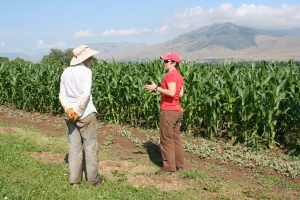
Collaborations: OREI-funded breeding projects are highly collaborative beyond project partners. NOVIC has included partnerships along the entire food spectrum: farmers, public plant breeders, independent seed companies, food retail and processing companies, and chefs and consumers.
New varieties: New varieties have been released through public – private partnerships. One variety, ‘Who Gets Kissed?’ sweet corn, was released in 2014 and completely sold out within a few months. Furthermore, the variety has been sold to growers in more than 40 states and across Canada. It was developed in response to the demand for an open-pollinated, good tasting sweet corn that tolerated cool soils in the Northern Tier without the use of fungicide seed treatments. Read more about NOVIC’s work to release new varieties.
Training students: OREI funding is essential to training the next generation of plant breeders who understand – and can work alongside or within – the organic seed industry. NOVIC has trained 8 graduate students who now work in the organic seed industry. Interest in organic agriculture research is booming, but funding isn’t keeping up with demand for this exciting area of research. Read more about NOVIC’s work to train students.
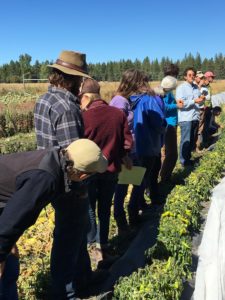
Training producers: NOVIC has hosted 80 events and presentations representing 19 states. These events have trained cozens of farmers in on-farm plant breeding and organic seed production. Read more about NOVIC’s work to train organic seed producers.
Diversity: NOVIC and other OREI-funded breeding projects are advancing much-needed research on orphan crops and emerging markets. Research funding for specialty crops (vegetables, fruits, pulse crops, and others) is woefully inadequate for meeting the diverse and regional needs of growers. The organic market, though rapidly growing, receives comparatively very little in the way of research funds compared to other forms of agriculture.
Science: OREI grants provide resiliency to this expanding market. Professional research focused on organic agriculture helps consumers understand that organic production is scientific and an exciting and growing area of public research. From the use of cover crops to dryland farming, research dollars support innovation and adaptation farmers face shifting climates and disease pressures, and new market opportunities.
Staying competitive: New plant varieties keep US producers competitive. In the organic sector, competition from overseas continues to increase. By providing varieties with increased yields, disease resistance, and other important traits that farmers, processors, and consumers want, we can provide more support for domestic producers. The potential to grow the organic industry for the benefit of farmers, rural communities, and the communities they feed is nothing short of remarkable, but that growth requires a strong OREI program and increased investment from other public research programs.
The Next Farm Bill
Help us ensure that OREI is protected and expanded in the next Farm Bill by joining our newsletter for policy updates. We also need to advocate for increased support of other agricultural research programs and funding sources that provide public plant breeding programs the funding and flexibility they need to be responsive and innovative. Public plant breeding programs are delivering the next generation of our food crops, the next generation of plant breeders, and, increasingly, the next generation of organic seed producers through education and extension services.
